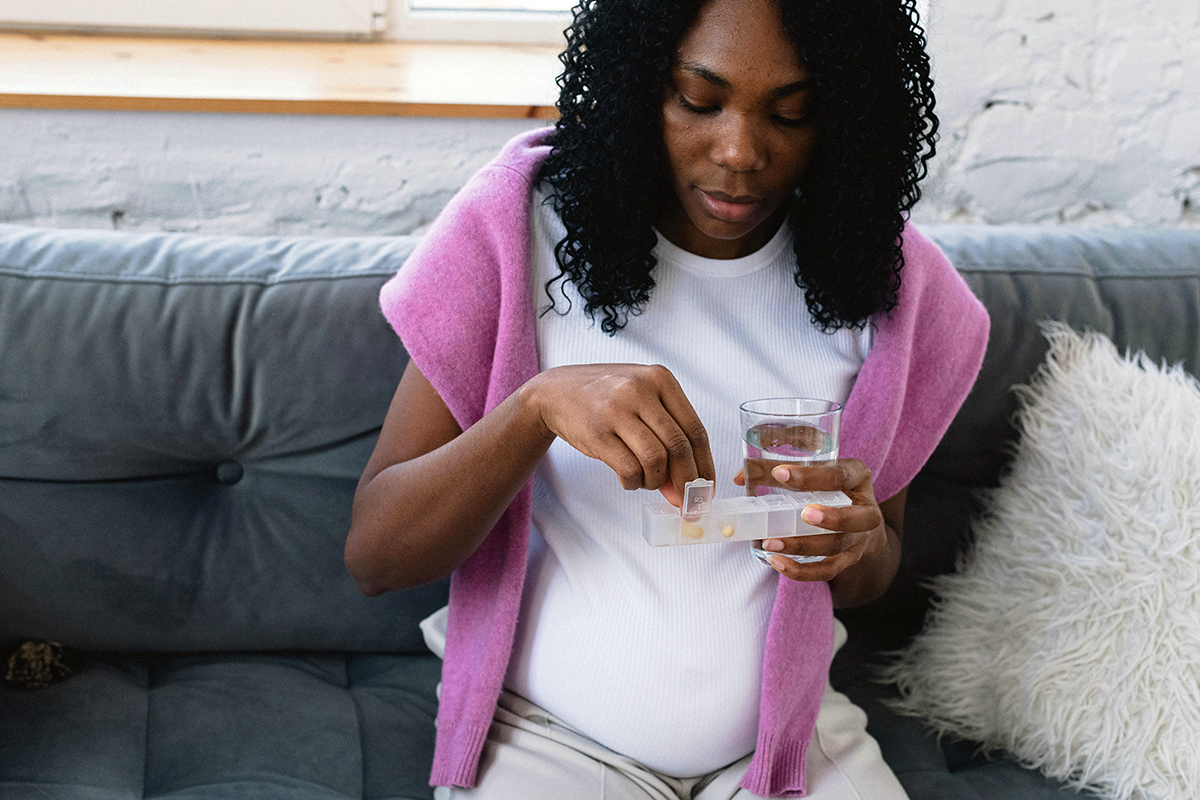I take Thorne prenatals, which only have folate in them (not folic acid), so my OB advised that I also take 400mcg of folic acid. I am now seven months pregnant and have been doing this since the beginning of my pregnancy.
I recently came across some research that says too much folic acid can lead to autism, and I’m feeling worried that I have been taking too much folate + folic acid in my pregnancy. Have you come across this in your work? How worried should I be about the impact on my baby? How legit are these studies?
––Claudia
This question of folate versus folic acid versus 5-methyltetrahydrofolate (5-MTHF) is a confusing one for many people. A primer:
- Folate is a vitamin found in food products.
- Folic acid is a synthetic form of this; when you consume folic acid, it is converted in the liver into 5-MTHF.
- Typically, prenatal vitamins contain folic acid on its own. However, some prenatals (like the brand Thorne) include 5-MTHF directly.

There is a lot of disagreement online about folic acid versus 5-MTHF. On one side, there are some genetic mutations that make people less efficient at converting folic acid to 5-MTHF. There are claims made — often, but not exclusively, by vitamin companies — that vitamins that include 5-MTHF directly are therefore more reliable (here is one example paper arguing this).
On the other side (this is where your OB comes in, I think), all of the large randomized trials on prevention of neural tube defects used folic acid. So you will certainly see claims that supplementing with 5-MTHF doesn’t work. This is, I think, a bit misleading; there is no reason to think that direct supplementation would work differently in terms of preventing neural tube defects.
All of this is to say that probably the recommendation to supplement with folic acid on top of your prenatal wasn’t necessary or evidence-backed. Your question, though, is whether it is risky. Researchers have looked at the possible links between folic acid and developmental outcomes, and the results are small and inconsistent. There’s a study from Spain that suggests higher doses might be associated with some small reductions in verbal skills (although most of the outcomes they study see no effect, so this may well be a statistical accident). On the flip side, a study from Greece showed higher communication skills with high doses.
In the end, there isn’t anything in the data that would suggest this is a significant concern and no reason to think it would be. Bottom line: Taking extra folic acid wasn’t necessary, but it’s also not something to worry about.
Community Guidelines
















Log in
I’ve been wondering about this for my current twin pregnancy. Not sure how to know how much is too much or too little with two. Have been erring slightly on the side of more folic acid rather than less (occasionally add an additional folic acid supplement to the regular prenatal).